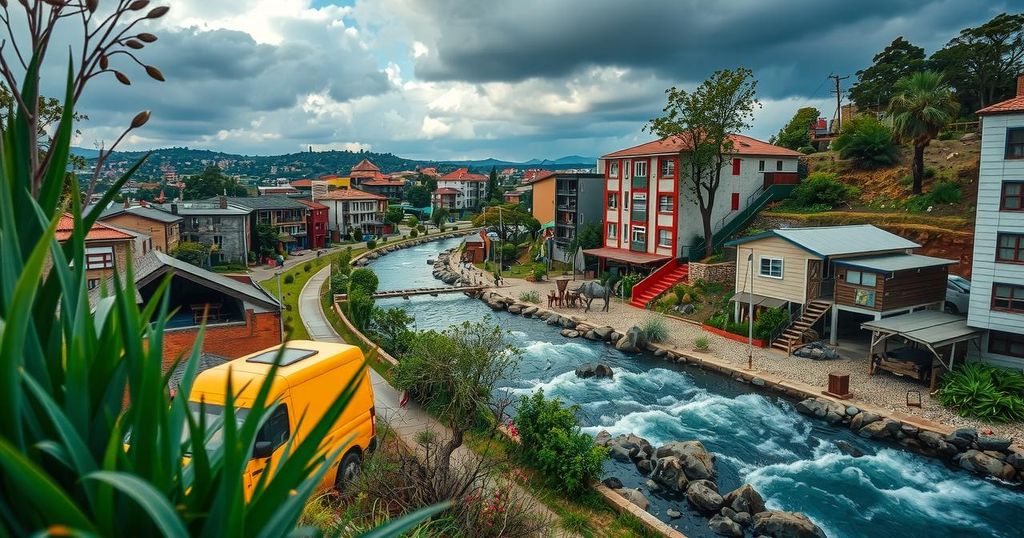Challenges to Water Security in Gauteng: The Degradation of Lesotho Highlands Wetlands
The wetlands in Lesotho Highlands, critical to Gauteng’s water supply, are degrading rapidly due to overgrazing, infrastructure development, and invasive species like Sloggett’s ice rat. This degradation threatens water security and increases sedimentation in reservoirs, underscoring the necessity for improved management and restoration strategies.
The Lesotho Highlands are facing significant ecological challenges that directly impact the water supply for the Gauteng region of South Africa, particularly through the Lesotho Highlands Water Project (LHWP). Central to this issue is the alarming loss of wetlands, which serve a crucial role in controlling water flow and preventing erosion, thereby ensuring the sustainability of the water supply. Recent studies indicate that between 1995 and 2014, the Mohale and Katse dam catchments lost approximately 21 to 24% of their wetlands. South African soil science specialist Johan van Tol emphasizes that the degradation of these wetlands represents one of the most critical threats to water security in a region already plagued by water scarcity. Additional concerns arise from pressures on these ecosystems from communal grazing and enhanced accessibility due to infrastructural developments like road construction associated with the LHWP. The influx of the invasive Sloggett’s ice rat, which indicates wetland degradation, further complicates the scenario. The rats create burrows that can exacerbate deterioration when floods occur. Overgrazing by livestock is identified as a primary driver of this environmental degradation. Mpho Brown of the Lesotho Highlands Development Authority (LHDA) acknowledges the problematic intervention strategies employed in the past but asserts they are yielding improvements. However, critiques from experts like Phallang Lebesa highlight the gaps in effective project management and the lack of proactive baseline research, which jeopardizes the success of rehabilitation efforts. The sedimentation levels in the reservoirs fed by these wetlands also pose a significant challenge. Although the LHDA reports relatively low sedimentation percentages currently, concerns mount as sediments accumulate, potentially jeopardizing the LHWP’s capacity to deliver water to South Africa. In essence, the future of Joburg’s water supply hinges on comprehensive, informed strategies for wetland rehabilitation and watershed management. Effective interventions focusing on sustainable grazing and thorough ecological assessments are paramount to preserving these vital water sources for the region.
The Lesotho Highlands Water Project is essential for supplying Gauteng, South Africa, with water. However, the wetlands that regulate this water supply are experiencing severe degradation due to multiple factors, including overgrazing and increased human activity resulting from improved infrastructure. Recent studies underline the alarming rate of wetland loss, which contributes to sedimentation issues in the dams, threatening the long-term viability of the water supply.
The health of wetlands in the Lesotho Highlands is critical for maintaining the water supply to Gauteng, South Africa, through the Lesotho Highlands Water Project. The degradation of these ecosystems presents significant threats, including increased erosion, sedimentation in reservoirs, and diminished water quality. Effective management strategies that address the roots of wetland degradation, alongside rigorous ecological assessments, are vital for ensuring sustainable water resources for the future.
Original Source: allafrica.com




Post Comment